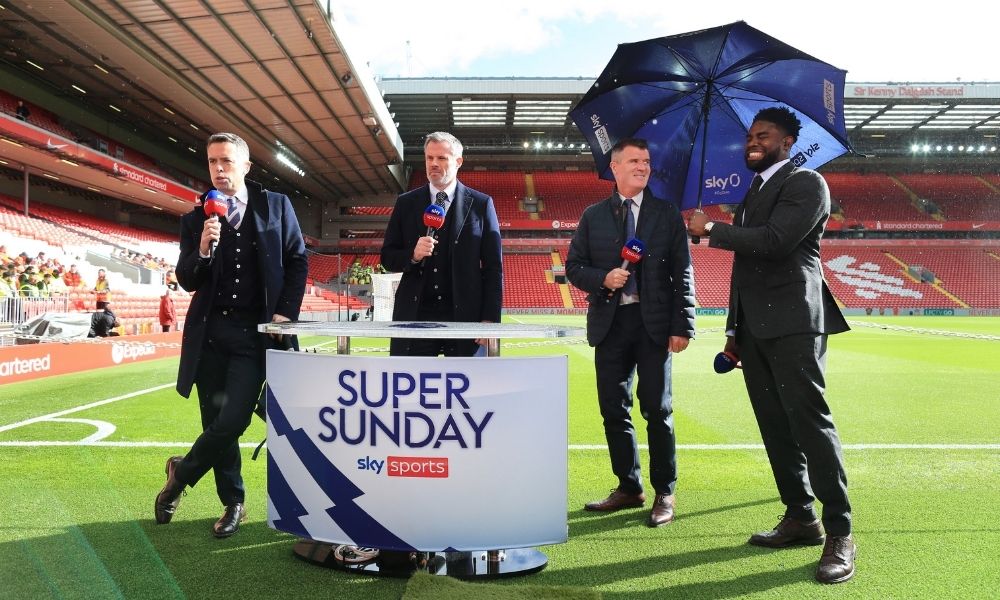The money game: the lessons from the new Premier League deal
December 13, 2023
Ian Whittaker, Twice City AM Analyst of the Year pens down the lessons from the new Premier League deal.
The new Premier League deal feels like it is a return to the days of old – Sky taking most rights, the re-emergence of a duopoly with TNT (ex-BT) and the absence of any Tech players. However, the outcome tells us a lot more not just about the value of the rights but the motivating factors for the main players.
For a start, the deal highlights – again – the sharp contrast between the English Premier League and other major soccer leagues when it comes to rights. The League managed to attract an increase in the absolute value of the rights (4% on a proforma basis i.e. adjusting for the fact the new contract is four years, not three). Other leagues, for example Serie A, have seen a decline in their absolute value while others – aka in France – have seen their auction process blow up spectacularly as bidders refused to meet the demands of a minimum price. This part reflects the appeal of the English Premier League relative to the others and part the financial state of the backers involved.
That leads onto the second point. People only bid for the rights – and are willing to pay large sums – if they think there is economic value. Sky is paying significantly more in absolute terms (it now owns four of the top five packages) but, from an economic and strategic standpoint, it is the right call to do. Sports is Sky’s citadel and, as it moves more to relying on a strategy of keeping customers and growing revenues per sub than subscriber growth, a vast increase in the number of matches available is likely to be valuable in keeping customers.
(I also think there is a very interesting advertising proposition here for Sky, particularly around the increased number of matches not just for the Premier League but also in the EFL – that demands an article by itself).
In a way, this also explains the presence of TNT. It was never going to be able to compete with Sky and the strategic (and financial) priorities of its co-owners, BT and Warner Bros Discovery (WBD), means that it was always going to play Robin to Sky’s Batman. However, for TNT, retaining the crucial Saturday 12:30pm package sends a message to customers that it remains committed to having sports rights and reinforces it as a home for those who do not want to take Sky.
The third point revolves around the lack of presence of the Tech giants amongst the successful bidders. Again, this links with the above point, namely that the economic rationale has to work, and it does not for the major Tech giants. Unlike the US, there is not a large TV advertising budget they can win from such rights, and they can’t really make their money in other ways – Prime has probably maxed out in penetration in the UK and it is hard to imagine Apple seeing a uplift in sales of iPhones or other products from buying the rights. The idea that the Tech giants will be the saviour of European football rights – as has been also proved recently in France – is false.
Fourthly, I am not convinced by the arguments that the fact the Premier League is receiving far fewer revenue per game is necessarily valid. That suggests that the value of the League is driven ‘bottom up’ i.e. a value is assigned to each game and then these are multiplied together to produce an end value. However, that is not the case. Whether additional matches are televised or not does not really impact the economics for the League. Put it another way – if 50% fewer matches were televised and the value of the rights declined by 25% would this be seen as a triumph for the League as it had received more per game? Almost inevitably, the answer would be no. The League is focused on the absolute amount it receives – and will be pleased with an increase.
The most interesting point revolves around DAZN. I have been involved in a LinkedIn debate as to whether DAZN did submit an actual bid or not, but the point is that, regardless, it does not look as though it made a serious bid to secure any of the packages. I think that was probably right on their part – I am not sure securing the TNT package for example would have been economically viable and there was no way they could outbid Sky. DAZN is rumoured to be listing next year and so probably does not want to make any reckless moves. It will, though, raise questions about its appeal in the UK market.
All in all, the rights have resulted in (probably) a happy Premier League, a satisfied Sky, a relieved TNT, a nonchalant Tech space and a cautious DAZN. That is probably not a bad outcome for all involved.
As usual, this is not investment advice.


